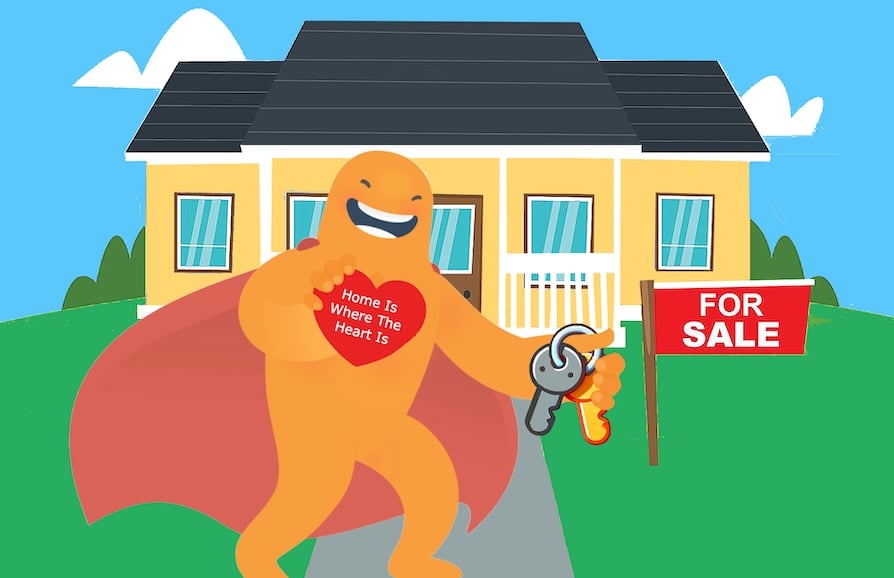“The greatest challenge that we have is regaining the trust of those that we serve,” writes Dr. David J. Thomas, Police Foundation Senior Research Fellow, on the foundation’s website. He’s referring of course to recent events which have fueled distrust of police officers among many in the public, making their difficult job even more challenging.
Create your police survey, questionnaire, or poll now!
One way that law enforcement agencies can get a gauge on the community’s concerns and their perception of policing is through surveys. Police community relations surveys are becoming more and more popular, with Law Enforcement Management and Administrative Statistics (LEMAS) reporting that nearly half of all agencies with 100 or more officers regularly survey the public.
History of the Police Community Relations Survey
Policing is a very community-oriented activity. To be at their most effective, law enforcement agencies typically have regular communication with the public to identify challenges and find solutions. The most common forms of contact involve incoming communication from the public (calls to 911 or non-emergency numbers, as well as online forms) and outgoing communication from law enforcement agencies (news briefings, neighborhood meetings, press releases, “meet and greets” with officers, citizen patrol programs, and social media).
While recent events may have increased the need to solicit community feedback on policing, many law enforcement agencies have been conducting informal surveys for years. This started in the 1980s when police departments began using a police-community satisfaction survey. These surveys, known as a Police-Public Contact Survey (PPCS), provided detailed information on the nature and characteristics of face-to-face contacts between police and the public, including the reason for and outcome of the contact and the respondent’s satisfaction with the contact (to date, the PPCS has been conducted eight times by the Bureau of Justice: view the most recent 2018 BJS report).
When community policing took off in the 1990s, some police surveys would also focus on specific problems within the community. Many of these surveys were administered face-to-face at the homes of residents. Of course, this was expensive – especially on tight budgets.
Today’s police surveys can be conducted online, and include questions that provide a measure of police performance. By asking “How are we doing”, law enforcement agencies can analyze the way police deliver services and possibly change the allocation of resources where needed. Some police-community survey questions even ask about specific problems affecting certain parts of a city, which further helps focus police resources.
Top 5 Benefits of Conducting Police Surveys
So, can a police survey really make a difference when it comes to improving community relations? Yes! Here are some of the benefits for law enforcement agencies that conduct community surveys.
1. Collecting Actionable Insights
Police surveys enable law enforcement agencies to collect very specific information from local residents that can be acted upon based on citizens’ responses. Some of the specifics that can aid in strategic planning and assessing police performance include:
- Confidence in the local law enforcement
- Performance of local law enforcement
- Satisfaction with police contacts
- Racial/ethnic differences in attitudes towards the police
- Awareness of police services and crime control efforts
- Concerns about community crime
In the next section, we’ll cover questions that can help inform decision-making regarding these areas of interest.
2. Building Community Trust
Most people love to give their opinions, and people in the community often appreciate it when local law enforcement asks for their input. This gives them a way to express concerns or deliver kudos. It also shows that the police care about the citizens they’re sworn to protect and value their thoughts.
While online surveys may not establish the same kind of rapport and trust that in-person meetings do, they still convey the message that citizens’ input is important. Plus, they’re able to be conducted on a limited budget and over a relatively short time-frame.
3. Surveying Larger Sample Sizes
The problem with many means of police-community communication (e.g., public and neighborhood meetings) is that time after time, the same people show up. Although their input is valid and beneficial, their opinions may represent the community at large. The same holds true when it comes to police complaints and inquiries filed online; the majority may be coming from a small minority.
Online surveys provide a more efficient way for law enforcement officials to hear from a more representative sample of the community (in smaller jurisdictions, the survey may even be targeted to every household).
4. Improving Communications with City Services
Some police departments tend to feel isolated from other city departments. Police officials may even feel at odds with city leadership, believing that crime solutions are unfairly left up to them.
When city surveys include survey questions about police, police and other city services can work together to address citizens’ concerns. For example, finding a crime reduction solution may be just as beneficial for the police as the parks or public works departments.
5. Finding Solutions Faster Through Easy Survey Analysis
When there’s unrest in the community, it’s important for police departments to get to the heart of the problem quickly in order to find solutions. Online surveys are typically standardized, providing quantifiable data that can be easily compiled and analyzed.
While qualitative survey research techniques, such as in-person meetings or phone interviews, may provide some interesting insights, analyzing responses becomes more difficult (and potentially inaccurate). In addition, many online survey programs have advanced statistical tools that can analyze survey data to determine validity, reliability, and statistical significance.
20 Questions to Ask on Police Surveys
Below, we’ve compiled a list of police-community survey questions you might want to consider on your next police survey. You can also find many police surveys online to base your questions on, such as these police-community survey examples from various police departments across the United States. There are also some great community survey questions about police on this example from Community Oriented Policing Services (COPS).
Perception of Local Police
- Do you feel local law enforcement attempts to develop relationships with community members, organizations, and groups?
- How often does local law enforcement communicate with community members (e.g., websites, e-mails, or public meetings)?
- Does local law enforcement make it easy for citizens to provide input (e.g., comments, suggestions, and concerns)?
- Are you aware of local law enforcement efforts to work with community members to solve local problems?
- To what extent do you think your law enforcement agency practices community policing? That is, working with the community to address and reduce crime and other issues?
- To what extent do you trust local law enforcement?
- Do you believe local law enforcement treats people fairly?
- In your opinion, does local law enforcement treat people differently based on certain attributes? (e.g., race, age, gender, nationality, sexual orientation, disability, etc.)
Effectiveness of Local Police
- Select the issues you think are the greatest problems within your community. (e.g., burglaries, domestic abuse, drugs, gang violence, hate crimes, homicide, muggings, assault, traffic, vandalism, etc.)
- Do you feel there is a strong enough police presence in your community?
- How fearful are you of crime in your community?
- Do you think local law enforcement cares about the community?
- How safe do you feel in your community during the day? At night?
- Do you think your law enforcement agency is effective at preventing crime?
- In your opinion, is local law enforcement addressing the problems that concern you?
- Do you believe police will “be there when you need them”?
Interaction with Local Police
- How many times in the past 12 months have you had contact with law enforcement?
- Why did you have contact with law enforcement? (e.g., emergency call, non-emergency call, traffic incident, community meeting, etc.)
- If you had contact with a law enforcement officer, how well did he or she explain his or her actions and procedures to you?
- When interacting with local enforcement, are the officers respectful?
A Police Survey Success Story
When Fort Collins, Colorado’s Interim Police Service Chief Terry Jones wanted to align the leadership team’s goals with the city’s values, he turned to its citizens.
In 2014, the city implemented a citizen survey process designed to gain insight into their experiences interacting with police officers. Acting on this feedback, the department increased its emphasis on Community-Oriented Policing (COPS). Community policing officers began building more trust by developing one-on-one relationships with citizens through programs such as “Shop with a Cop” and “ride-alongs.”
The COPS program has contributed to resident survey scores on crime prevention that outperform both regional and national comparisons. “I can’t imagine a law enforcement agency not doing a survey,” says Jones, who’s now the Timnath, CO Police Chief. “If you’re not taking the temperature of your community, you’re missing the boat.”
Conclusion
The New York Times reports that confidence in police is at a record low. In fact, for the first time in 27 years, the Gallup survey shows that the majority of Americans do not trust law enforcement. That makes community policing – working with citizens – more important than ever.
One way to “the temperature of your community,” to quote Chief Jones, is through police surveys. With SurveyLegend, law enforcement agencies can create online surveys targeted toward households in their jurisdiction, getting a gauge on what concerns them and their perceptions of local police in order to work on making improvements. Our pre-designed surveys are secure, mobile-friendly, and offer easy analysis. Take the tour and get started today!
Does your law enforcement agency conduct regular police surveys? Have you been able to better serve the community as a result? We’d love to hear from you!
Create your police survey, questionnaire, or poll now!
Frequently Asked Questions (FAQs)
A Police-Public Contact Survey (PPCS) asks citizens who’ve recently interacted with a police officer to provide detailed information on the reason for the contact and their satisfaction.
Typically, police surveys focus on citizens’ perceptions of police, police effectiveness, and recent interactions with police. Understanding citizens’ concerns about crime in their community is also a priority.
Police departments benefit from online community surveys in a number of ways. They can gain actionable insights, sample a large portion of their citizens at a low cost, build community trust, and more.





